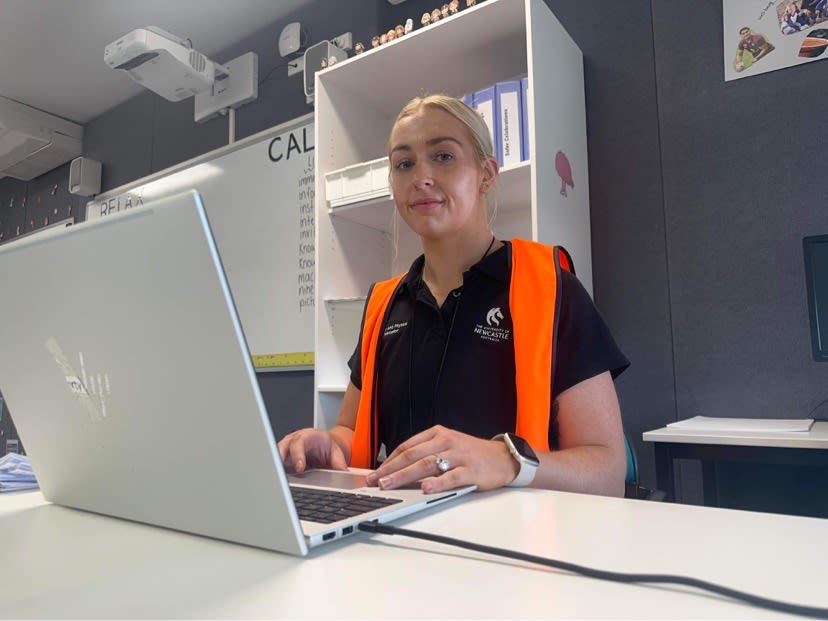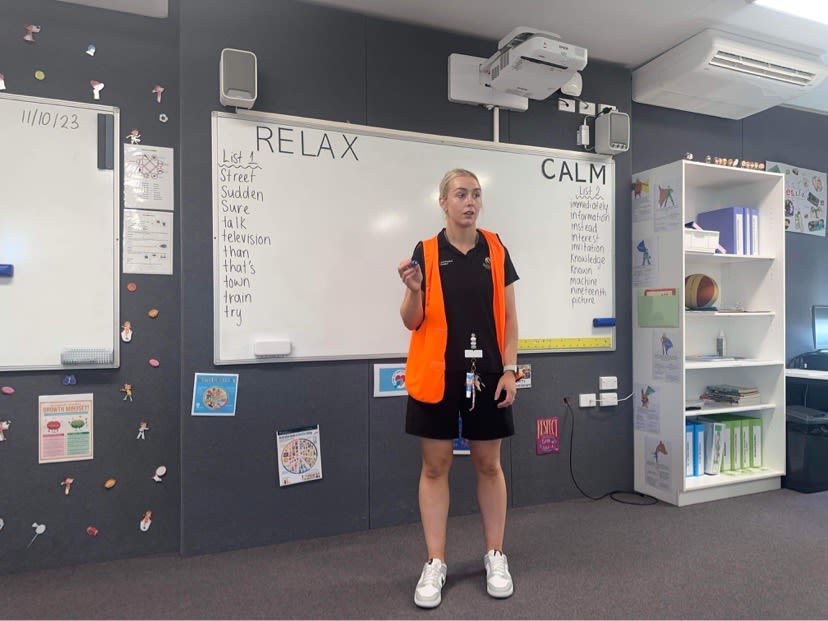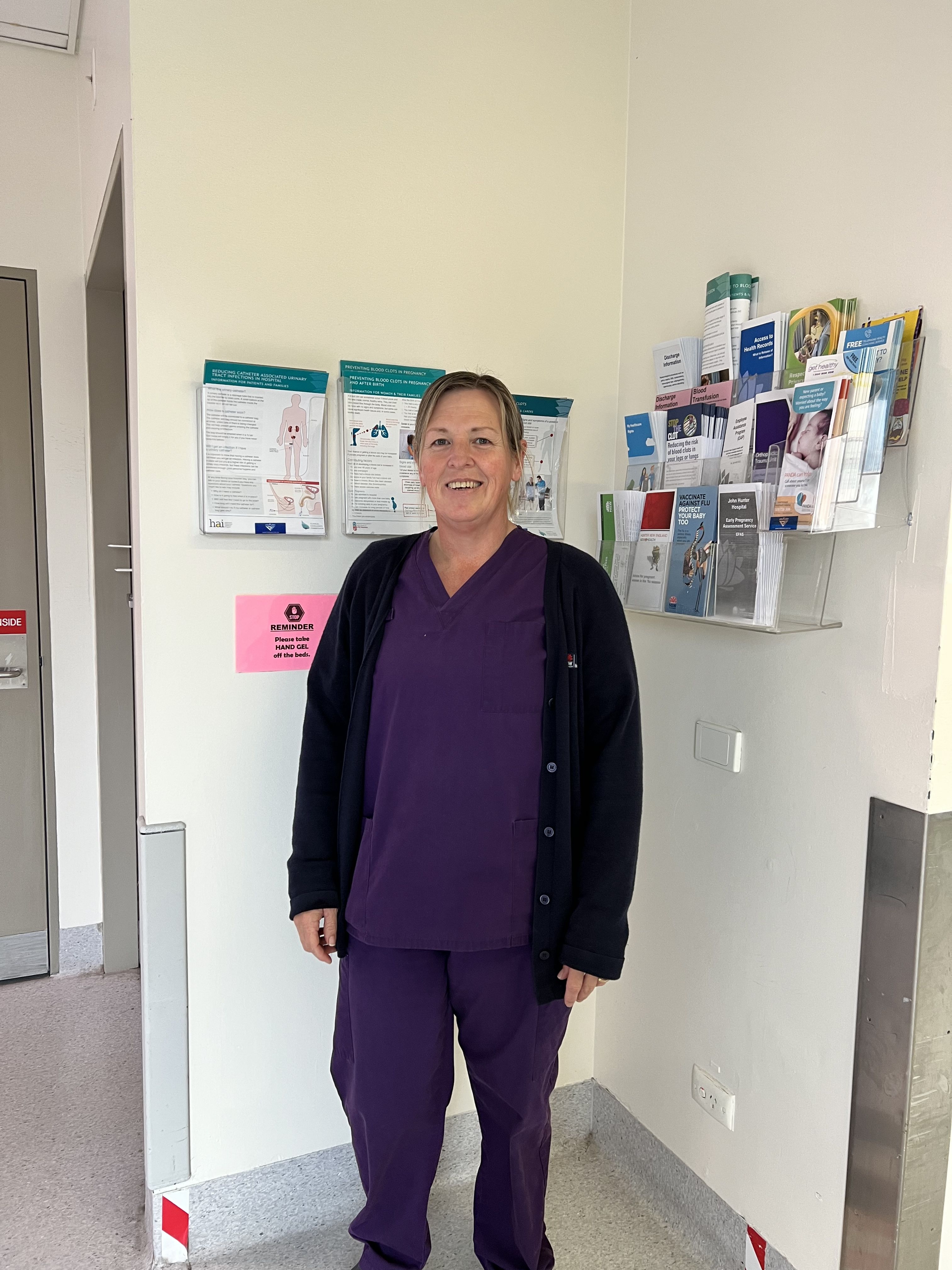'Placement Poverty'
The unpaid work contributing to students' financial insecurity
By Charlotte Wintle

Shelby Long taught a PDHPE lesson on placement about healthy eating and then went back to the staffroom at lunch with nothing to eat.
It’s the harsh reality university students face while undertaking mandatory work placements for degrees such as nursing, teaching, social work, and other allied health professions.
Of the estimated 450,000 students that undertake work integrated learning experiences each year, 43% of them are mandated to undertake the placements to obtain their qualifications. These sectors are facing major staff shortages right now, and it may coincide with the fact that students can be doing up to 40 weeks of these placements unpaid.
For Long, 3 blocks of unpaid placement in the final years of her degree placed her in a position of financial instability. While paying rent, insurance, and her usual expenses, she had to outlay the cost of uniforms, fuel, additional accommodation, and food while completing the equivalent of 2 months unpaid work in towns at least an hour away from her home.
Long was forced to quit her job as a student learning support officer and start a small business making cakes due to the demanding hours and inconvenient times that her placements were scheduled.
“I was making about 8 cakes a week. Because of placement and study, I had to stay up at night to make and decorate them, and on weekends too,” she said.
The financial strain of placement was just one of the many kinds of stress Long felt.
“We had assessments due while we were on placement, and at the end of each placement we also had to complete a huge portfolio which was due a week after placement finished. I think because we had to do the portfolio while I was learning to teach and study, it wasn’t my best work.
“I was in a new setting, and in one of the placements I didn’t have a very supportive supervising teacher, so it was very stressful trying to navigate what to do on top of teaching, planning lessons, and having meetings.”
Long said her mental health was impacted by the stress and she couldn’t do things she wanted such as keep up with her professional boxing training.

Shelby Long remembers weeks of placement where she couldn't afford to eat. Image: Supplied
Shelby Long remembers weeks of placement where she couldn't afford to eat. Image: Supplied

Shelby Long teaching students about healthy eating. Image: Supplied
Shelby Long teaching students about healthy eating. Image: Supplied
The placement to poverty pipeline
Stories like Long’s are common in other degrees such as social work, with more than a third of students losing their entire weekly income because of mandatory placements. A further 25% of students lose three quarters of their regular wage according to a 2022 study conducted by the Australian Council of Heads of School of Social Work.
Only 4% of students surveyed said they had enough money to pay for food, clothes, and travel to attend placement.
Amid the current cost of living pressures, the inflated price of food, the limited availability of affordable housing, and the indexation of university fees, student support systems such as Youth Allowance and ABSTUDY have not had a significant increase since their inception.
The study found that the rise of placement poverty amid the cost of living crisis is impacting attrition rates as 4 in 5 students surveyed said they knew others that had to defer or withdraw from university entirely due to unpaid placement requirements.

Bachelor of Midwifery graduate and mum of four Kristy Allardice was not shocked by the falling attrition rates.
“We had a young girl that started with us whose family were in Dubbo and she quit after the first year because she couldn’t afford to do the degree. She didn’t have little children, but she had no support to do placement, pay rent, and move around in a car. She had to quit studying because she couldn’t support herself.”
Allardice herself struggled with the demands of unpaid placement, which over the course of her degree, amounted to around 6 months of work. She was working night shifts up until September in the first year of her degree but had to stop because of the times her placements were scheduled.
This was difficult for Allardice, who had twin one-year olds at home.
“For a lot of the women and men that do these degrees, they have families. You might spend all this time with a woman and when she goes into labour you can’t attend because you can’t get a babysitter.”
The demanding and scattered placement hours also forced Allardice into a tough financial situation.
“I gave up a job where I was earning probably $1000 a week because of the demands of placement. I went from that to nothing because my partner worked and earned, not a great wage, but too much to qualify for any assistance from the government; so, we lost my wage and had to live off his wage. It was really tough paying a mortgage, car rego, and having kids. It was a tough two and a half years without a pay.”

Jess Lightfoot, who completed a Bachelor of Nursing, understands the pain of placement poverty after having to complete the equivalent of 20 weeks unpaid work.
“I started a new job just before I started uni. I was able to keep the job, but it was in our policy at the time that we weren’t allowed to work while on placement blocks. If I was on a block for 6 weeks, even though it was unpaid, I wasn’t allowed to work during that period because of concerns of fatigue. So essentially, I was spending up to 6 weeks without any sort of income. Obviously when I was spending $250 a week on student accommodation and then placement fees, extra accommodation, transport and general fees like uniforms, textbooks, I was absolutely stressed.
“I remember for one of my placements I had 2 weeks’ notice to find somewhere to stay around Christmas time and I spent $2000 because it was the only accommodation I could secure in time to attend the placement.”
Lightfoot struggled to balance weekly assessments that were due while she was on placement, and her grades went from high distinctions to passes as she had 4 hours to study after 12-hour days at placement. She missed out on opportunities to work and see friends and family.
“It was strictly placement, study, and sleep. Towards the end of my second year, I seriously considered whether I wanted to continue with the degree, but I was so far through that I kept going and I’m glad I did.”

Jess Lightfoot went up to 6 weeks without any income. Image: Supplied
Jess Lightfoot went up to 6 weeks without any income. Image: Supplied
Why are students doing placements unpaid?
Under the Fair Work Act unpaid placement is considered legal for students. The Act has a significantly high threshold for what constitutes an employment relationship, and as such, placement students are not considered employees and are not entitled to a minimum wage or similar payment.
4 in 5 students surveyed in the 2022 study said that their mental health was impacted by the demands of placement and the undue financial hardship.
The panel of higher education experts that make up the Australian Universities Accord published an Interim Report earlier this year which highlighted the rising cost of living and the need to improve income support to encourage participation in the degrees with shortages right now. The report highlighted that some community groups are overrepresented and unduly disadvantaged, including women, those from low-socioeconomic backgrounds, and Indigenous Australians.
So what can be done?
The interim report proposed solutions to the issue of placement poverty such as amending the Fair Work Act to make unpaid work illegal to ensure that students are paid at least a minimum wage, temporary payments through Centrelink, or government grants given to placement hosts to pay students.
The federal government’s response to the Australian Universities Accord interim report is the Higher Education Support Amendment currently being heard in the Senate.
The amendments to the Act are indicative of further change under the biggest review of Australia’s tertiary education system in fifteen years.


Long said the demands of placement would be reduced if students were being paid, at the very least, a minimum wage.
Long doesn't want students to suffer like she did. Video: Charlotte Wintle
Long doesn't want students to suffer like she did. Video: Charlotte Wintle
Allardice agreed that by paying students on placement, there would be a better skilled workforce with minimal risk because the students would be getting paid under the supervision of qualified workers.
“The placement hours are absolutely necessary; you can’t learn midwifery without being hands on. But if you’re getting paid, you’re there all day and aren’t going to miss anything. We could afford childcare and be able to plan our lives better,” she said.
Lightfoot believes payment is needed given that apprentices are paid while completing their trades.
“They might not be getting much of an income, but they’re getting something. We’re doing placement over 3 years and not getting paid at all. It would make people more engaged in placement and take pressure off trying to fit so much work in and end up being burnt out.”
If this article has raised issues for you, or if you are concerned about someone you know, call Lifeline on 13 11 14 or Beyond Blue on 1300 22 4636.
